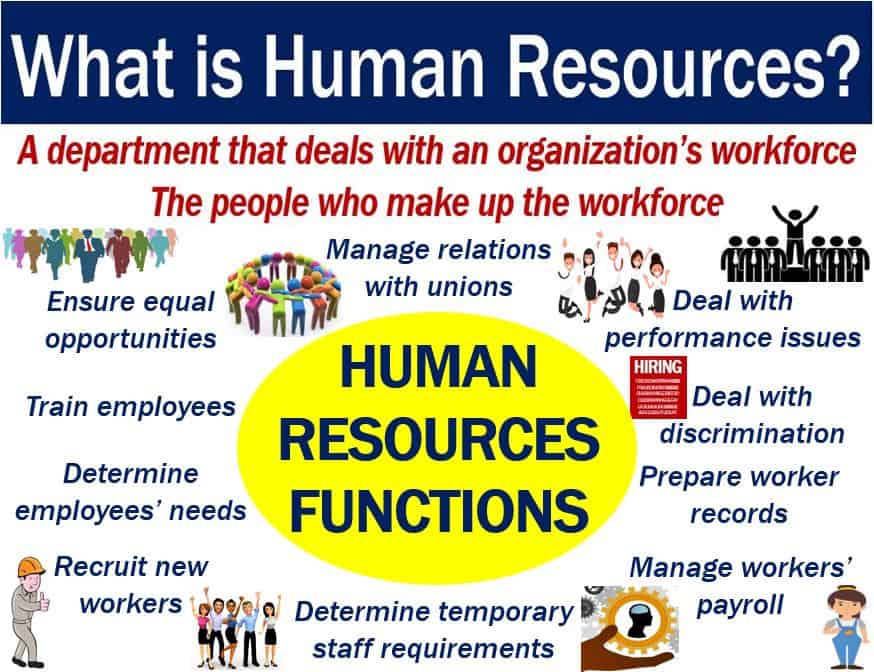Human resources or HR is the department of a company that hires, administers, and trains personnel. In fact, that department may exist in any organization that employs people. Human resources is a significant asset to a business or organization regarding abilities and skills.
The term also refers to the people who make up an organization’s workforce at the company or national level. For example, Japan’s most valuable asset is its human resources. This means that Japan has a valuable workforce.
HR deals with employees’ performance management and compensation. Compensation, in this context, means salaries, commissions, bonuses, etc. It also deals with job analysis, i.e., determining what the duties of a job are and who is best suited for it.
The singular form of the term, i.e., human resource, is one employee within an organization.
Wikipedia has the following definition of HR when we are talking about an organization’s department:
“A human-resources department (HR department) of an organization performs human resource management, overseeing various aspects of employment, such as compliance with labor law and employment standards, administration of employee benefits, and some aspects of recruitment and dismissal.”

Human resources – functions
The human resources department of a company may consist of just one person or a large group of professionals. The size depends on how large or small the employer is.
Some of HR’s functions include:
- – Determine the needs of employees.
- – Train employees, i.e., either organize training internally or externally.
- – Decide when to use and how to get temporary staff.
- – Recruit new workers.
- – Prepare worker records and personnel policies.
- – Manage relations with employees, as well as unions.
- – Manage the workforce’s payroll, compensation, and benefits. In this context, payroll means wages.
- – Deal with cases of discrimination.
- – Make sure there are equal opportunities in the workplace.
- – Deal with problems concerning performance.
- – Motivate and encourage employees.
- – Ensure that the employer adheres to local and national rules and regulations.
Human resource development (HRD)
HRD refers to the training and development of an organization’s workforce. It is part of human resource management. Training involves improving workers’ skills so that they can perform better in the workplace.
HRD is the framework for helping employees develop their personal and professional skills, knowledge, and abilities.
Employers that continue encouraging their employees to develop their skills have lower staff turnover. In other words, their workers tend to stay longer.
A motivated and well-trained workforce helps a company be competitive. It also helps businesses become or remain profitable.
Human resources – etymology
Etymology is the study of the history of words and phrases and how their meanings evolved.
The term ‘human resources’ dates back to a 1893 book by John R. Commons – ‘The Distribution of Wealth.’ However, he did not further build on it.
People subsequently used the term during the first twenty to thirty years of the 20th century. They used it with the notion that we should see workers as capital assets.
In 1958, economist E. Wight Bakke was the first scholar to use the term human resources in its modern form.
Video – What is Human Resource Development
